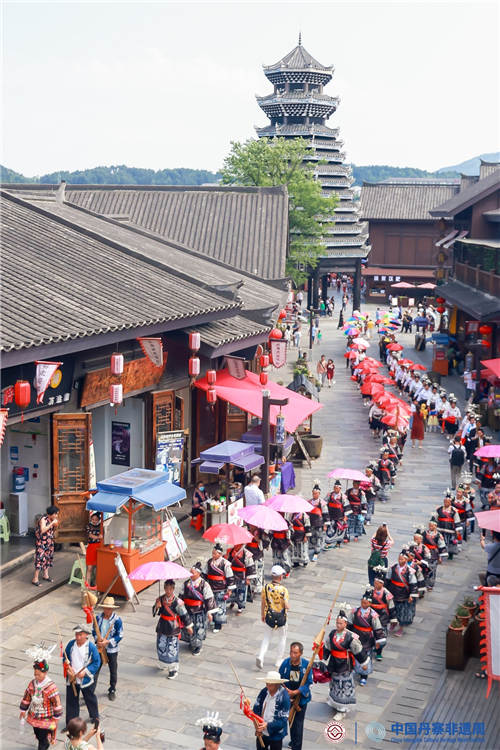

They hailed the heritage week itself as a great creative effort to thoroughly implement the policy of the Ministry of Culture and Tourism on the sustainable development of intangible heritage.
Among the topics that experts discussed were "Maintaining cultural diversity in life to promote tourism development", and "The integrated construction of cultural and ecological protection areas for rural revitalization".
"Chinese tourism garnered 6 billion visits in 2019, which is more than four times the population of the country," said Luo Shugang, deputy director of the Cultural, History and Learning Committee of the National Committee of the Chinese People's Political Consultative Conference.
"Tourism has become China's largest mobile activity."
In a tourism market as large as that of China, to focus on the construction of tourism civilization, tourism officials must use excellent traditional culture to shape tourism, Luo said, and intangible heritage is the most comprehensive carrier of excellent traditional culture.
"Danzhai Wanda Town is a successful case of intangible cultural heritage meshing with a scenic spot," Luo said.
"The town has created an all-element intangible cultural heritage environment, with intangible cultural heritage seeping into all elements of tourism, including food, housing, transport, travel, shopping and entertainment. I feel and experience intangible cultural heritage everywhere, and the intangible cultural heritage products provided by the town provide tourists with what they want. This successful case is a model for scenic spots across the country."
Xi Jianchao, a researcher at the Institute of Geographical Sciences and Natural Resources Research of the Chinese Academy of Sciences, said in a discussion that when talking about integrating intangible heritage and tourism, intangible cultural heritage is a basic entry point. In fact, many locals are accustomed to the traditional production or lifestyle of intangible heritage. Integration is a form of internal and external sharing of local culture that reflects the basic requirement of a culture to serve people, he said.